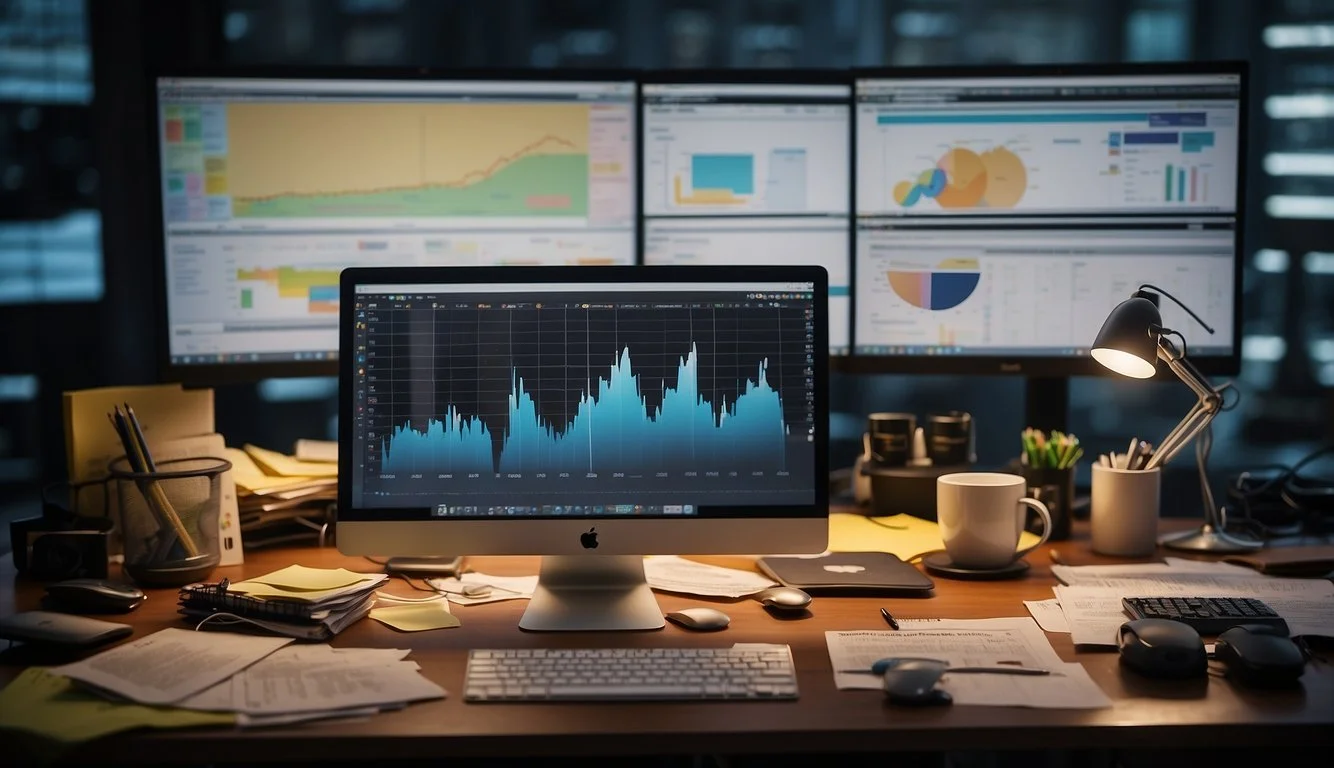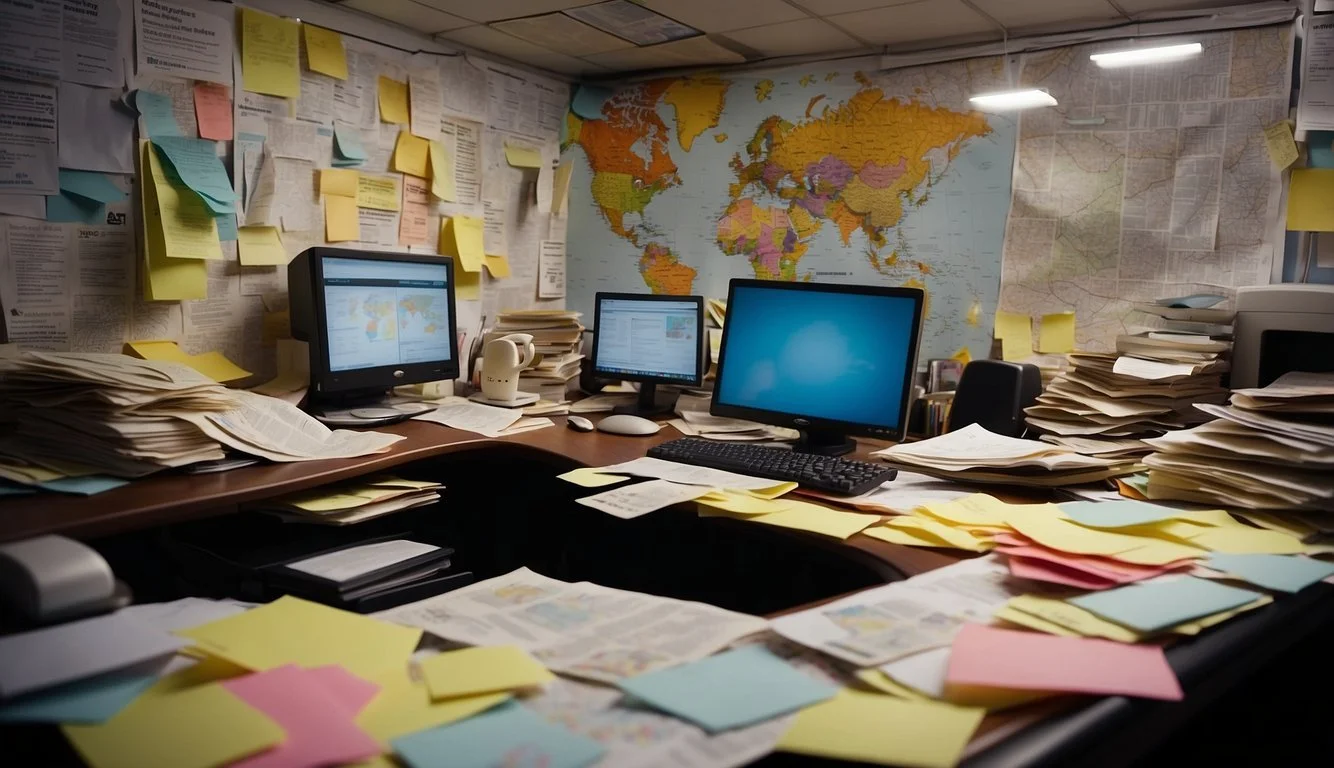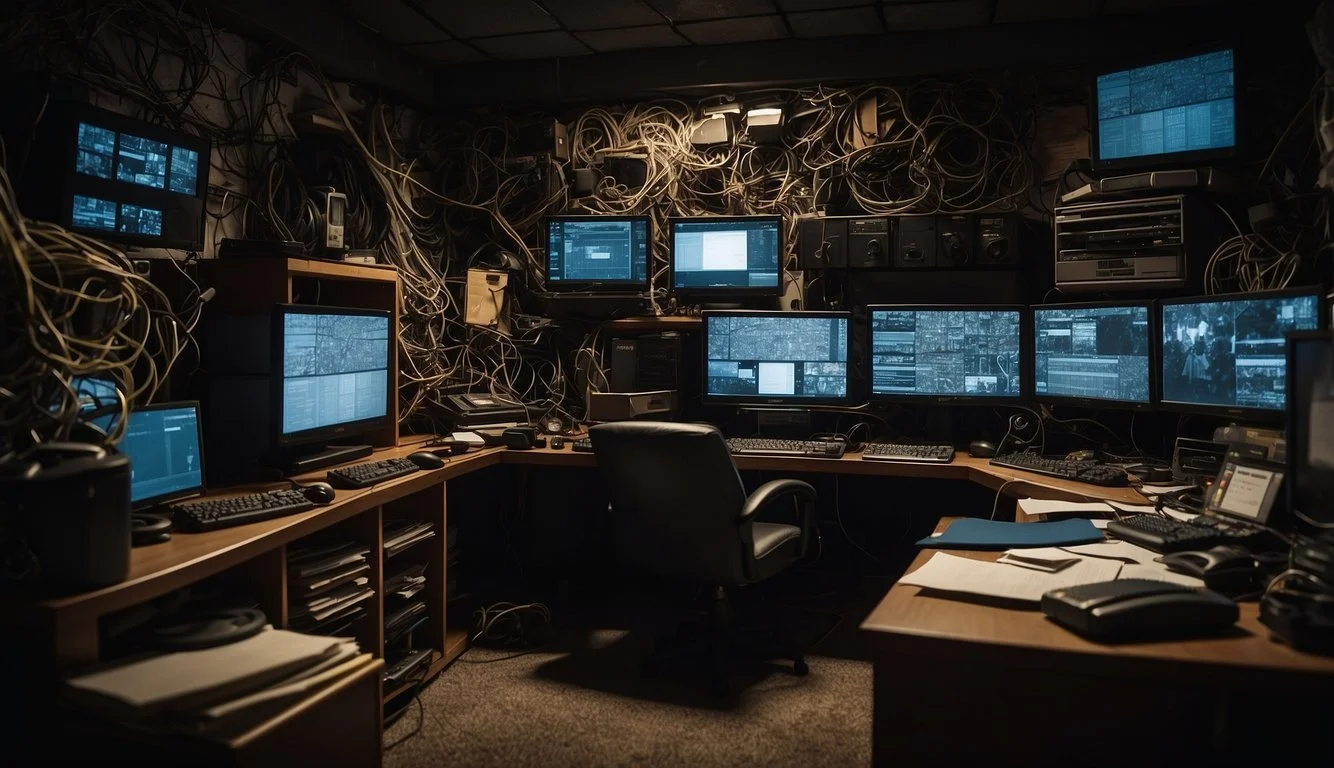Documentary Review: The Great Hack (2019)
Examining Data Privacy and Social Media Influence
The Great Hack is a 2019 Netflix documentary that delves into the controversial Cambridge Analytica scandal. With a gripping narrative, the film provides a deep dive into how personal data has transformed into a valuable and potentially dangerous commodity. Directed by Jehane Noujaim and Karim Amer, it features examinations by academic David Carroll and insights from whistleblowers like Christopher Wylie.
Exploring the intersection of technology, privacy, and democracy, the film raises critical questions about data privacy and manipulation. It paints a vivid picture of how Cambridge Analytica exploited data to influence political outcomes, particularly in the 2016 US presidential election and the Brexit referendum. This documentary not only informs but also urges viewers to reflect on their own digital footprints and the implications of data harvesting.
Audiences are introduced to various perspectives and complexities surrounding the data collection industry. The inclusion of real-world examples and key figures adds depth and context to the narrative. This compelling documentary underscores the urgent need for transparency and accountability in the digital age.
Context and Background
"The Great Hack" is a 2019 Netflix documentary that examines the role of data exploitation in the political arena. The film primarily focuses on the Cambridge Analytica scandal, which had significant implications for data privacy and democracy.
Cambridge Analytica was a political consulting firm that used data mining and analysis during various political campaigns, most notably the 2016 US Presidential election. Their methods raised ethical and legal questions about the use of personal data.
The documentary sheds light on how personal data has transformed into a valuable commodity. It argues that data-driven strategies have the power to influence voter behavior and, consequently, the outcome of elections.
Key figures in the documentary include Brittany Kaiser, a former Cambridge Analytica employee who became a whistleblower, and academic Carole Cadwalladr, who investigated the scandal. Their perspectives provide an insider view of the company’s operations.
Additionally, the documentary references psychological experiments like Dr. Philip Zimbardo's Stanford Prison Experiment. These experiments illustrate the potential dangers of manipulating human behavior under controlled conditions, drawing parallels with Cambridge Analytica's practices.
The film’s directors, Jehane Noujaim and Karim Amer, aim to highlight the ethical concerns and societal impact of data exploitation. Through a character-focused narrative, they explore the complex relationship between personal data, privacy, and political power.
"The Great Hack" provides a critical look at the intersection of technology and politics, emphasizing the need for greater transparency and regulation in the digital age.
Overview of 'The Great Hack'
"The Great Hack" (2019) examines the intersection of data, privacy, and politics, focusing on Cambridge Analytica's role in harvesting personal information to influence major events like the 2016 U.S. Presidential election and the Brexit vote. The documentary features insights from former employees and experts in the field.
Synopsis
"The Great Hack" unveils the techniques used by Cambridge Analytica to exploit personal data on an unprecedented scale. It charts the firm's involvement in collecting data from millions of Facebook users without consent. Central to the story are whistleblowers like Christopher Wylie and Professor David Carroll, who shed light on how data was weaponized for political gain.
The film moves through various global events, illustrating the profound impact of data exploitation on democratic processes. It also portrays individuals' struggles to reclaim control over their personal information, presenting a stark warning about the future of data privacy.
Filmmakers and Crew
Directed by Karim Amer and Jehane Noujaim, "The Great Hack" benefits from the duo's experience in tackling complex social issues. Noujaim is known for her work on "The Square," while Amer has collaborated on various impactful projects.
The film's production team includes seasoned professionals who ensure a high-quality presentation. Cinematography blends interviews, archival footage, and digital graphics seamlessly, making complex data more understandable. The editing is sharp, maintaining a clear narrative flow throughout the documentary.
Key Themes and Issues
The central theme of "The Great Hack" is the commodification of personal data. It highlights how data has become a powerful tool in shaping public opinion and influencing elections.
The documentary also delves into the ethical implications of data collection and the lack of transparency from companies like Facebook. Privacy erosion and the manipulation of information are key issues that the film addresses. The role of whistleblowers is crucial, providing insider perspectives on the inner workings of data firms.
These themes compel the audience to reconsider their own digital footprints and the broader consequences of unchecked data exploitation.
Critical Analysis
The Great Hack presents a deep dive into the complex world of data harvesting, skillfully discussing its ethical implications and the mounting sociopolitical influence it wields. Its critical strengths and weaknesses span its narrative and direction, visuals, editing, and sound.
Narrative and Direction
Directed by Karim Amer and Jehane Noujaim, The Great Hack leverages a compelling narrative structure to explore the data privacy landscape. The film pivots around David Carroll's lawsuit against Cambridge Analytica, seamlessly weaving personal stories with expert testimonies. The directors maintain a balanced narrative, avoiding sensationalism and ensuring a factual portrayal of the events. This blend of individual and global perspectives provides viewers with a thorough understanding of the documentary's central issues.
Cinematography and Visuals
The cinematography in The Great Hack is visually engaging and thoughtfully crafted. Each scene leverages high-quality, striking visuals to maintain viewer interest. The film uses a mix of live-action footage, animations, and archival videos to highlight the depth and complexity of data manipulation. This variety in visual style not only enhances the storytelling but also makes abstract concepts more accessible. The aesthetic choices contribute significantly to the documentary's overall impact.
Editing and Pacing
The editing and pacing of The Great Hack are designed to keep the viewer engaged without overwhelming them. The documentary flows smoothly between different narrative threads, ensuring coherence and clarity. The pacing adjusts dynamically, slowing down for detailed explanations and quickening during moments of revelation or emotional intensity. However, at times, the film's length may feel slightly stretched, particularly during repetitive segments. Despite this, the careful structuring ensures that the documentary remains compelling throughout.
Sound and Music
The sound design and music of The Great Hack play a crucial role in setting the tone and mood. The documentary employs a subtle but effective score that underscores the gravity of the subjects discussed. Sound effects are used judiciously to highlight critical points without detracting from the narrative. The clarity of interviews and dialogues ensures that viewers can follow the complex discussions without distraction. This careful sound curation enhances the overall viewing experience, making the documentary both informative and immersive.
Subject Matter Examination
"The Great Hack" delves into the intricate issues surrounding data privacy, the influence of social media, and the pivotal role played by Cambridge Analytica in political campaigns.
Data Privacy Concerns
The documentary highlights the significant threats to personal data privacy. It presents cases where individuals' data is harvested without explicit consent. This data is then used to create detailed profiles, which can be exploited for various purposes. The film includes testimonies from experts who outline how data mining companies operate. They reveal the lack of transparency in data usage. This raises ethical questions about the control individuals have over their own information. The film stresses the need for stricter data protection laws.
Impact of Social Media
Social media platforms are scrutinized for their role in data exploitation. "The Great Hack" shows how social media algorithms can manipulate user behavior. The film provides examples of how targeted advertisements influence users. It examines Facebook's role in spreading misinformation. Social media's vast reach and power are portrayed as double-edged swords. While these platforms connect people, they also facilitate the spread of propaganda. The documentary emphasizes the responsibility these companies have in safeguarding user data.
Political Influence and Cambridge Analytica
The core of "The Great Hack" is the investigation into Cambridge Analytica's practices. The documentary uncovers how the firm used data to shape political outcomes. It details the methods used to influence voter behavior. Key figures in the scandal, like Brittany Kaiser and Alexander Nix, are spotlighted. Their roles in orchestrating data-driven campaigns are examined. The film connects Cambridge Analytica's tactics with significant political events, such as the 2016 U.S. Presidential Election. This section underscores the profound implications of data manipulation in democratic processes.
Public and Critics' Reception
Since its release in 2019, "The Great Hack" has garnered significant attention from both the public and critics. The documentary's portrayal of data privacy and its implications has sparked widespread discussion.
Box Office and Viewership
"The Great Hack" premiered on Netflix, making it accessible to a global audience. Although Netflix does not release specific viewership numbers, the film quickly climbed the platform's trending list, indicating high interest.
The documentary's provocative subject matter resonated with viewers concerned about data privacy. Social media buzz and word-of-mouth recommendations contributed to its broad viewership. This immediate engagement highlights the growing awareness and concern about data misuse.
Critical Reviews
Critics offered diverse opinions on "The Great Hack." Major outlets emphasized its relevance in the context of data privacy. Roger Ebert's review highlighted its parallels to psychological experiments, noting its deep dive into the ethical implications.
Variety critiqued the film as a "documentary as liberal hand-wringing," bringing a distinct perspective to its narrative style. Vox appreciated its detailed account of Cambridge Analytica's influence, underscoring the film's chilling portrayal of personal data as a commodity. These varied insights reflect the documentary's polarizing effect among reviewers.
Awards and Recognitions
"The Great Hack" received acclaim in the documentary film community. It was nominated for numerous awards, including the British Academy Television Awards for Best Documentary. The film also garnered nominations at the International Documentary Association (IDA) Awards.
This recognition underscores the film's impact and importance. Critics praised its in-depth investigation and its ability to prompt crucial conversations about data privacy. While it did not win major awards, its nominations attest to its technical and narrative strengths.
Comparative Analysis
The Great Hack stands as a prominent documentary delving into the intricacies of data privacy and its misuse by corporations. It offers a visual narrative similar to other notable documentaries on technology and privacy.
Terms and Conditions May Apply focuses on how online privacy policies impact everyday users. Both films tackle data misuse but differ in their storytelling approach.
The Social Dilemma offers a dramatic portrayal of social media's impact on society. While it is visually engaging and leans into dramatization, The Great Hack remains grounded in real-world events and personalities.
Feature The Great Hack Terms and Conditions May Apply The Social Dilemma Release Year 2019 2013 2020 Main Focus Cambridge Analytica Online Privacy Policies Social Media Impact Storytelling Style Documentary Documentary Docudrama Visual Style Real-world footage Interviews and animations Dramatizations and interviews
Stylistically, The Great Hack employs real-world footage and interviews, providing a more investigative feel.
Scope differs as well. The Great Hack concentrates on Cambridge Analytica's role in manipulating elections, whereas The Social Dilemma covers the broad effects of social media on mental health and democracy.
When comparing viewer engagement, The Social Dilemma might appeal more to those seeking a dramatized narrative, while The Great Hack will attract viewers interested in factual, investigative content.
This comparative analysis underscores the unique aspects brought forward by each documentary, catering to varying viewer interests and preferences.
Cultural and Social Significance
The 2019 documentary The Great Hack explores the profound impact of data exploitation on democracy and society. This film details how companies like Cambridge Analytica used personal data to influence political outcomes, sparking widespread debate about privacy.
The Great Hack raises questions about the ethics of data collection. The film shows the ease with which personal information can be harvested and manipulated, affecting millions.
The documentary highlights the erosion of trust in social media platforms. Viewers are prompted to consider how these platforms have reshaped public discourse and the marketplace of ideas.
The Great Hack serves as a cautionary tale. It showcases the need for stronger data protection laws and greater transparency in data usage, reflecting growing public concern over digital privacy.
The film underscores the role of whistleblowers. Figures like Christopher Wylie and Brittany Kaiser become key voices in unveiling the opaque practices of data firms.
This documentary also connects to various social movements. It illustrates how data manipulation was used to target specific groups, exacerbating social divisions.
The Great Hack emphasizes the individual's responsibility in the digital age. It encourages viewers to scrutinize their data-sharing habits and become more aware of their online footprint.
The documentary has sparked conversations in academic and policymaking circles. By tackling the intersection of technology, politics, and ethics, it has become a reference point for discussions on digital governance.
Conclusion
"The Great Hack" masterfully unpacks the complexities of data privacy and the commodification of personal information. It uses the Facebook-Cambridge Analytica scandal to illustrate the profound implications of data misuse.
The documentary features key figures such as academic David Carroll and whistleblower Christopher Wylie. Their insights and experiences provide a compelling narrative on the ethical boundaries of digital data exploitation.
Visually, the film employs engaging graphics and animations. These elements help demystify technical concepts, making them accessible to a broader audience.
The documentary also raises important questions about accountability. It urges viewers to consider who should be responsible for the ethical use of data in our increasingly digital world.
Directed by: Jehane Noujaim and Karim Amer
Running time: 113 minutes
Available on: Netflix
Expert perspectives and real-world examples make "The Great Hack" a pivotal watch for anyone interested in the intersection of technology and ethics.





